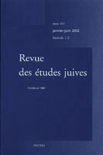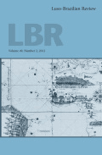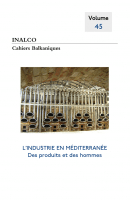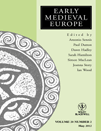
SVMMA-Revista de Cultures Medievals
metrics 2024
Unveiling the Depths of Medieval Scholarship
Introduction
SVMMA-Revista de Cultures Medievals is a pioneering open-access journal published by the Institut de Recerca i Cultures Medievals (IRCVM) at the University of Barcelona. Since its inception in 2013, this journal has dedicated itself to the exploration and dissemination of knowledge pertaining to medieval cultures across various disciplines, including archaeology, history, literature, philosophy, and the visual and performing arts. As an accessibility-driven journal, SVMMA ensures that its scholarly content is readily available to researchers, professionals, and students, promoting academic dialogue and interdisciplinary research. Despite its current Q4 rankings across diverse fields, SVMMA represents a valuable platform for emerging and established researchers alike, facilitating a deeper understanding of medieval studies and underscoring the journal's commitment to fostering innovative scholarship. Located in Barcelona, SVMMA continues to contribute significantly to the academic discourse while encouraging insightful perspectives on the rich tapestry of medieval cultures.
Metrics 2024
 -
- 0.10
0.10 0.10
0.10 -
-Metrics History
Rank 2024
JCI (Web Of Science)
Quartile History
Similar Journals

REVUE DES ETUDES JUIVES
Fostering Dialogue on Cultural and Historical NarrativesREVUE DES ETUDES JUIVES, published by PEETERS, stands as a vital platform for scholarly discourse in the realms of Cultural Studies, History, Literature and Literary Theory, and Religious Studies. Based in Belgium, this journal, bearing the ISSN 0484-8616 and E-ISSN 1783-175X, has been faithfully chronicling research since its inception, with comprehensive coverage spanning from 1967, 1969, and several periods thereafter until 2023. Although categorized in Q4 quartiles across its fields—showing a diverse yet niche presence—it provides an invaluable space for emerging voices and established scholars to explore Jewish studies in a multidisciplinary context. Despite its compact impact factor and Scopus rankings reflecting its emerging status in the academic community, the journal is committed to fostering dialogue on the cultural and historical aspects of Jewish identity, offering a unique opportunity for researchers, professionals, and students to engage with contemporary and historical issues of Jewish significance. As a non-open access resource, it appeals to those seeking rigorous academic inquiry supported by Peeters' esteemed publishing acumen.

STUDI MEDIEVALI
Connecting Scholars to the Heart of Medieval InquirySTUDI MEDIEVALI, published by the Centro Ital Stud Sull Alto Med, is a premier journal dedicated to the exploration of medieval studies, focusing on both cultural and historical dimensions. Since its inception in 2002, this journal has become an essential resource for scholars and students alike, providing critical insights into the complexities of the medieval era. Although it currently operates under a traditional access model, its contributions to the field are undeniable, with a 2023 ranking in the fourth quartile for Cultural Studies and History categories in Scopus rankings, highlighting its niche yet valuable position within academic discourse. Based in Spoleto, Italy, the journal serves as a platform for innovative research and interdisciplinary dialogue, inviting contributions that challenge conventional understandings and stimulate further inquiry into medieval life. Researchers and professionals will find in STUDI MEDIEVALI an opportunity to engage with a community of passionate scholars dedicated to uncovering the multifaceted realities of the medieval period.

Luso-Brazilian Review
Advancing Scholarship in Luso-Brazilian StudiesLuso-Brazilian Review is a premier academic journal published by University of Wisconsin Press, dedicated to advancing the study of Lusophone cultures, literature, history, and socio-political contexts. With an ISSN of 0024-7413 and E-ISSN 1548-9957, this journal serves as a vital resource for scholars who seek to explore the rich and diverse connections between Portugal and Brazil. It holds notable distinction with a Q1 ranking in Literature and Literary Theory and consistently performs well in Cultural Studies and History, making it an essential publication for both researchers and enthusiasts in these fields. Although not open access, the journal offers a wealth of peer-reviewed articles that probe into intricate themes impacting Lusophone literature and cultural studies from 1978 to 2024, ensuring that readers remain at the forefront of ongoing scholarly conversation. Housed in the heart of the United States at Madison, WI, Luso-Brazilian Review continues to cultivate an academic dialogue that is relevant, timely, and invaluable for professionals, students, and anyone interested in the cultural interplay between Lusophone nations.

Annee du Maghreb
Connecting Scholars to the Heart of North AfricaAnnée du Maghreb, published by CNRS Éditions, is an esteemed open-access journal dedicated to advancing the study of Mediterranean and North African cultures, history, and societies. Since its inception in 2004, the journal has aimed to foster a deeper understanding of the complex socio-political dynamics, artistic expressions, and historical contexts of the Maghreb region. By providing a platform for rigorous research and interdisciplinary dialogue, Année du Maghreb plays a pivotal role in enriching academic discourse and enhancing knowledge within the fields of anthropology, history, and cultural studies. Accessible to a global audience, this journal invites researchers, professionals, and students to contribute to its growing repository of scholarly work, ensuring the continuation of high-quality discussions pertinent to this vibrant area of study.

Acta Baltico-Slavica
Advancing Interdisciplinary Dialogue in Baltic StudiesActa Baltico-Slavica, an esteemed academic journal published by the Polish Academy of Sciences, Institute of Slavic Studies, serves as a vital platform for the exploration of Slavic cultures, languages, and historical narratives. Since its transition to Open Access in 2014, the journal has fostered inclusivity and accessibility, allowing researchers, professionals, and students to engage with cutting-edge scholarship in the fields of History, Linguistics and Language, and Literature and Literary Theory. With a commendable impact as indicated by its category quartile rankings (Q2 in History and Literature, Q3 in Linguistics), and Scopus rankings reflecting its significance within the academic community, Acta Baltico-Slavica not only contributes to the rich tapestry of scholarship surrounding the Baltic and Slavic regions but also encourages interdisciplinary dialogue. The journal’s commitment to advancing knowledge across its fields of study makes it a prominent destination for scholarly discourse and research inquiry.

Cahiers Balkaniques
Navigating the Complexities of Balkan SocietiesCahiers Balkaniques is a distinguished academic journal dedicated to the study of Balkan languages, cultures, and civilizations, published by the Institut National des Langues et Civilisations Orientales (INALCO). Since its inception in 2004, it has embraced an Open Access model, facilitating unrestricted access to its research articles, making it a vital resource for scholars and professionals in the fields of linguistics, cultural studies, and regional history. With ISSN 0290-7402 and E-ISSN 2261-4184, Cahiers Balkaniques serves as a crucial platform for disseminating research that explores the rich and diverse heritage of the Balkan region. Researchers, students, and professionals alike benefit from its commitment to fostering understanding and dialogue around the intricate social, political, and linguistic dynamics of the Balkans, solidifying its importance within the academic community.

Revista Chilena de Estudios Medievales
Cultivating a Global Dialogue on Medieval HeritageRevista Chilena de Estudios Medievales, published by Universidad Gabriela Mistral, is a premier open access journal that has been serving the field of medieval studies since 2012. With its unique ISSN 0719-2215 and E-ISSN 0719-689X, this journal provides a vital platform for scholars, researchers, and students interested in the rich tapestry of medieval history, literature, and culture. Located in Santiago, Chile, at Ladislao Errazuriz 2073, Providencia, Santiago 00000, the journal aims to foster a deeper understanding of the medieval period through interdisciplinary research and insightful articles. While impact factors and HIndex data are currently unavailable, the journal is dedicated to maintaining high academic standards and promoting knowledge dissemination in the field. Its open access model ensures that research is freely available to the global community, thereby enhancing engagement and collaboration among medieval studies scholars. Join us in exploring the depths of the medieval world through Revista Chilena de Estudios Medievales.

Boletin del Museo Chileno de Arte Precolombino
Bridging Disciplines to Unravel Pre-Columbian MysteriesBoletin del Museo Chileno de Arte Precolombino is a premier multidisciplinary journal published by the MUSEO CHILENO ARTE PRECOLOMBINO in Chile, dedicated to exploring the rich tapestry of pre-Columbian art and culture. With both ISSN 0716-1530 and E-ISSN 0718-6894, this Open Access journal has been providing free and immediate access to its scholarly content since 2016, making it a vital resource for researchers, professionals, and students alike. Covering diverse areas within anthropology, archaeology, and the visual arts, the journal consistently ranks in the Q1 category across multiple disciplines, illustrating its significance in fostering academic community dialogue and advances in understanding ancient cultures. As it converges from 2014 to 2024, the journal is poised to further enhance its impact, maintaining an esteemed position within Scopus rankings and reinforcing its commitment to high-quality research and scholarship in the humanities.

Ancient Civilizations from Scythia to Siberia
Charting the Course of Ancient Cultures in EurasiaAncient Civilizations from Scythia to Siberia, published by BRILL, is a pivotal journal dedicated to the exploration and scholarly analysis of ancient cultures in Eurasia, with a focus spanning from the Scythian tribes to the Siberian territories. With an ISSN of 0929-077X and an E-ISSN of 1570-0577, this journal plays a significant role in the fields of Archeology, Classics, and History, holding esteemed rankings in Q3 and Q1 categories, thus affirming its status in the academic community. Covering a wide temporal range from 1995 to 2024, the journal aims to provide a comprehensive platform for researchers and students to disseminate their findings and foster collaborative discourse. With impact rankings in the 86th and 75th percentiles for Classics and History, respectively, it is recognized for its high-quality contributions that advance knowledge in these areas. Although currently not an open-access journal, it offers various options for accessing its rich content. By bridging gaps in historical understanding and engaging with the complexities of ancient societies, Ancient Civilizations from Scythia to Siberia remains an essential resource for those passionate about uncovering the narratives of our past.

Early Medieval Europe
Bridging the Past with Innovative ResearchEarly Medieval Europe, published by WILEY, is a distinguished academic journal that delves into the multifaceted history and cultural dynamics of the early medieval period in Europe. With an ISSN of 0963-9462 and an E-ISSN of 1468-0254, this journal provides a vital platform for scholars and researchers seeking to share innovative research developments within the field. Covering a range of disciplines including history and arts, it holds a category quartile ranking of Q3 in Arts and Humanities (miscellaneous) and History, alongside Q4 in Geography, Planning, and Development. Notably, it ranks #302 out of 1760 in the Arts and Humanities—History category, reflecting its significance and impact within the scholarly community. While devoted to the promotion of traditional scholarly communication, Early Medieval Europe also welcomes interdisciplinary approaches, making it a valuable resource for students, professionals, and academics interested in insights and advancements related to medieval studies. With an ongoing commitment to meaningful dialogue and exploration, this journal remains a pivotal resource for understanding the complexities of early medieval Europe.